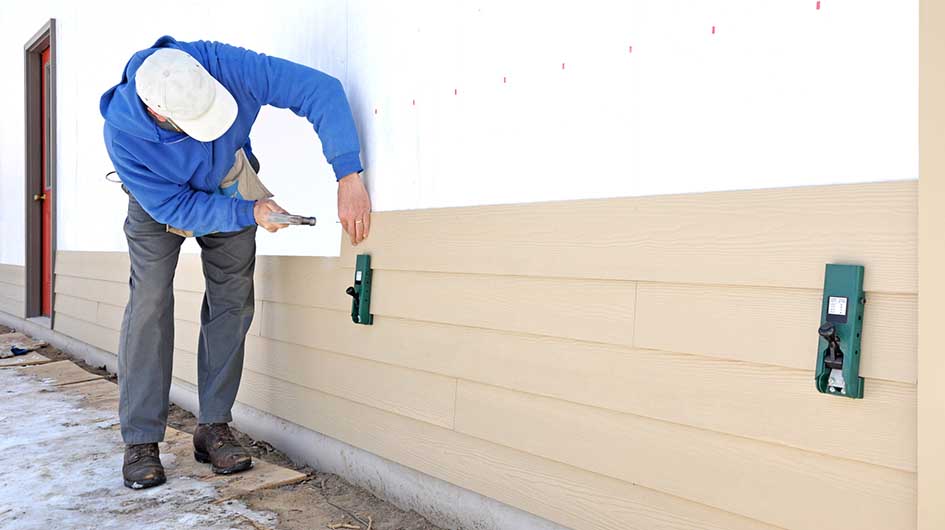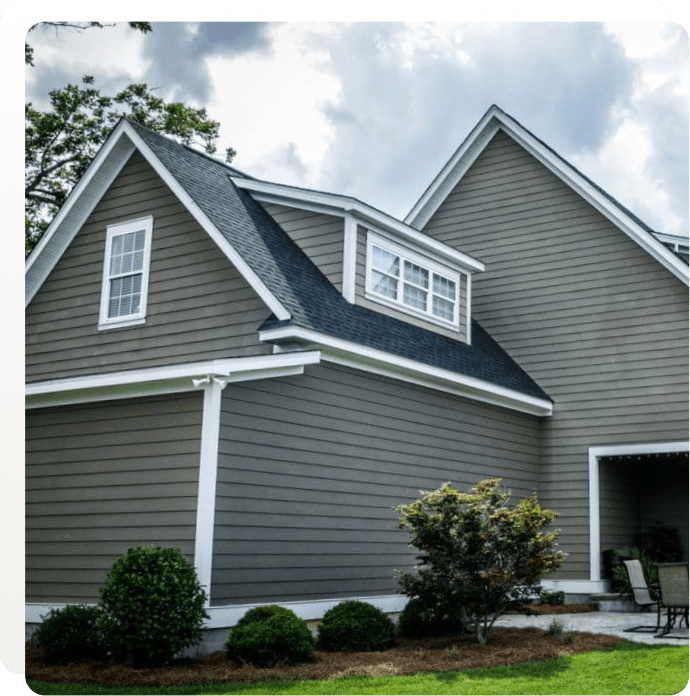Morris Siding Contractor Committed to Excellence in Every Project
Morris Siding Contractor Committed to Excellence in Every Project
Blog Article
The Essential Guide to the Various Types of Siding and Their Distinct Benefits
In the world of home renovation, picking the right home siding is a vital decision that influences both visual allure and practical performance. The variety of products offered, such as timber, vinyl, fiber metal, cement, and block, each offer one-of-a-kind benefits that provide to different demands and choices. Comprehending these distinctions can dramatically boost the durability and value of a residential or commercial property - morris siding contractor. However, with numerous options to think about, which house siding product genuinely stands apart for your certain task? Exploring these choices can result in notified decisions that straighten with both style and functionality.
Timber Exterior Siding
Timber siding, a prominent choice for residential exteriors, offers a classic visual that integrates natural appeal with architectural stability. This exterior siding material is offered in different designs, consisting of clapboard, tiles, and board-and-batten, enabling home owners to customize their façade to match their layout choices. Timber exterior siding is typically crafted from long lasting types such as cedar, redwood, or pine, which are known for their strength and capability to stand up to environmental stress factors.
Among the main benefits of timber house siding is its outstanding insulation homes, which can add to power efficiency and lower home heating costs. In addition, wood house siding is naturally degradable, making it an eco-friendly choice when sourced sustainably. Regular maintenance, including paint or staining, can extend its lifespan and improve its look, enabling homeowners to protect the all-natural appeal of the timber.
Nevertheless, potential disadvantages consist of vulnerability to pests, rot, and climate damage, demanding sufficient therapy and maintenance - morris siding contractor. Regardless of these issues, when effectively taken care of, wood house siding can supply a stunning and resilient solution that boosts the character of a home while supplying a warm, welcoming atmosphere

Vinyl Exterior Siding
Vinyl house siding has actually become a leading option for house owners seeking a low-maintenance exterior alternative that incorporates toughness and affordability. This versatile product is crafted from polyvinyl chloride (PVC), making it resistant to various climate conditions, consisting of wetness and UV rays. Because of this, plastic exterior siding does not warp, rot, or discolor, guaranteeing resilient visual appeal.
Among the primary advantages of plastic home siding is its extensive array of colors and designs, permitting house owners to attain the preferred try to find their building without the need for constant repainting. Additionally, vinyl house siding is easy to set up, which can significantly minimize labor prices during building and construction or improvement tasks.
Vinyl home siding also contributes to power performance. Many choices attribute insulation support, which enhances thermal performance, assisting to keep comfortable indoor temperature levels and potentially lowering energy costs. Its smooth surface promotes easy cleansing, calling for only regular washing with a garden tube to eliminate dirt and particles.
Fiber Concrete Siding
Fiber concrete siding has acquired grip amongst home owners and contractors alike as a result of read more its amazing combination of toughness and visual versatility. Composed of a blend of cellulose, sand, and concrete fibers, this exterior siding option is crafted to stand up to extreme weather conditions, consisting of high winds, heavy rainfall, and temperature level changes, making it a resilient option for residential outsides.

Among the key advantages of fiber cement siding is its resistance to parasites, such as termites, and its non-combustible nature, offering improved fire safety and security. morris siding contractor. Furthermore, it is available in a large array of shades, textures, and designs, permitting property owners to attain their preferred visual without compromising performance
An additional advantage is its reduced upkeep demands; fiber concrete exterior siding usually requires painting or discoloration every 5-10 years, which is much less frequent than other products. Its longevity contributes to a lower general price of ownership, as it minimizes the demand for frequent repair services or replacements.
Eventually, fiber concrete exterior siding stands for an excellent investment for those looking for a durable, eye-catching, and functional exterior alternative, integrating both form and feature to improve the home's curb allure.
Metal Exterior Siding
The allure of steel exterior siding depends on its durable longevity and modern visual charm, making it a favored selection for contemporary style. Readily available in materials such as light weight aluminum and steel, metal home siding provides a variety of finishes and shades, enabling homeowners to attain a personalized look that matches their design vision.

Energy efficiency is an additional substantial advantage, as numerous steel house siding products are developed with insulation alternatives that aid control interior temperatures. This can cause reduced energy expenses with time. Additionally, metal home siding is usually recyclable, making it an eco-friendly selection for sustainability-minded home owners.
The setup procedure for metal siding can be fairly straightforward, leading to a quicker turn-around time for construction jobs. On the whole, metal home siding combines capability and style, making it a practical choice for those looking for a long-lasting and aesthetically appealing exterior finish.
Brick and Stone Siding
Brick and stone exterior siding sticks out as a classic option that boosts the visual beauty of any kind of home. Recognized for their resilience and low maintenance, these products provide an extraordinary return on financial investment while boosting the home's visual appeal. Available in various shades, appearances, and patterns, block and rock can be tailored to suit varied architectural styles, from typical to modern.
One of the primary benefits of brick and stone house siding is their power effectiveness. Both materials have natural insulating residential properties that assist manage interior temperature levels, possibly minimizing cooling and heating expenses. Furthermore, they provide premium fire resistance compared to other house siding options, contributing to improved safety and security.
Another benefit is their durability. Block and rock can last for years, typically needing marginal maintenance beyond occasional cleaning. Unlike wood home siding, they are unsusceptible pests and rot, guaranteeing a resilient outside that holds up against the elements.
Conclusion
In recap, the option of house siding substantially affects a home's aesthetic appeal, power performance, and upkeep demands. Each type of exterior siding-- whether wood, plastic, fiber brick, cement, or metal and rock-- offers special benefits customized to various house owner choices and environmental problems.
One of the main advantages of wood siding is click to read its superb insulation residential or commercial properties, which can add to energy performance and reduced heating expenses. In addition, wood house siding is naturally degradable, making it an eco friendly alternative when sourced sustainably.One of the main advantages of metal home siding is its resistance to numerous environmental variables.Energy effectiveness is another substantial benefit, as many steel exterior siding products are designed with insulation alternatives that help manage indoor temperatures. Each type of house siding-- whether wood, vinyl, fiber brick, metal, or cement and rock-- supplies unique advantages tailored to various property owner preferences and ecological conditions.
Report this page